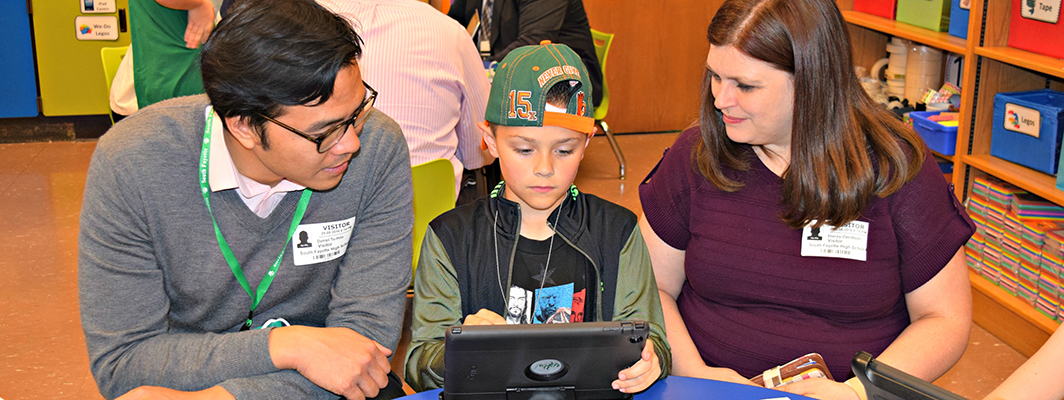This article originally appeared on Usable Knowledge from the Harvard Graduate School of Education. Read the original version here.
We know that serious stress experienced early in life can have severe consequences on children’s biological development and executive function. Now, a new paper from the Center on the Developing Child at Harvard University is showing that the same stressors that hinder children’s development can have lasting consequences for adults, preventing them from developing and using the “core capabilities” they need to succeed at work, as parents, and in their communities.
What are these core capabilities? According to the report, they include planning and prioritizing, focus, self-control, awareness, and mental flexibility — all characteristics of self-regulation, our ability to manage our responses to the world. The executive function skills that underpin these essential capacities are built in early childhood and develop through adolescence and early adulthood, as the brain grows and changes.
Chaotic, stressful, and threatening situations can derail anyone. But lifelong poverty and adversity make it especially difficult to build the skills people need to manage life’s challenges.
- When people experience adversity early in life, brain regions used in threatening situations tend to over-develop. This pattern can heighten “fight or flight” responses and diminish the ability to assess a situation accurately and respond intentionally.
- These over-built, “automatic” responses lead to self-perceptions of powerlessness — mindsets that say the world is a threatening place, and it is impossible to have the agency to gain control.
- A pile-up of frequent, stressful situations redirects attention from long-term goals and focuses it on crisis management, overloading the brain systems involved in decision-making and impulse control.
Poverty creates a paradox. A lifetime without financial security, a stable home, or a reliable support network lays a huge amount of stress on people. Over time, this stress hampers their ability to develop and sustain core capabilities such as long-term planning, attention to what’s important, positive framing, and self-confidence. But at the same time, getting out of poverty requires people to manage complex situations, prioritize decisions, and persevere against odds — actions that depend on exactly the skills that poverty has broken down.
How to Build and Restore Core Capabilities
Thankfully, even adult minds can change and grow. With the right kind of targeted support, adults can fight the effects of adversity, become effective workers and supportive parents — and perhaps even break the intergenerational cycle of poverty.
The report lays out two main avenues — environmental and individual— through which policymakers and service providers can help adults build or restore their capabilities.
Environmental Approaches to Building Core Capabilities
How can we change programs and services to create a more productive environment for building skills?
- To reduce stress, systems and services designed to help adults should be presented in a simple, logical way. Clarify directions and break everything into easy steps. Whenever possible, streamline and combine services, and bundle together applications from different agencies.
- Pay attention to the tone and style of the interaction between caseworkers and the adults they serve. Adults in poverty may feel threatened or marginalized by others, so provide services in a respectful manner. Positive feedback and politeness from caseworkers can go a long way.
- Incorporate ways for adults to build their own capabilities. When social workers include organizational tools such as checklists, or provide friendly reminders such as text messages about deadlines, they help adults practice their planning and prioritizing skills — while ensuring that these programs will be effective.
- Use existing service-delivery systems to relieve stressors by filling basic needs. Pre-set programs that provide food and diapers, child care, and transportation assistance allow adults to focus on longer-term priorities and goal-setting, instead of worrying over logistics.
Individual Approaches to Building Core Capabilities
How can we help adults strengthen their capabilities on an individual level?
- Align training and coaching to the contexts in which they’ll be used. For instance, prepare adults to “stop and think” in specific situations they confront every day, such as a crying toddler or an uncooperative co-worker.
- In these same scenarios, teach and practice strategies to change the motivational framing of a situation. By affirming a core value and using it to reassess a stressful situation, adults may be more likely to adhere to long-term goals.
- Teach strategies for recognizing and pausing unproductive patterns of thought or reaction. Mindfulness training, for example, can increase working memory and reduce reactivity.
- Use techniques such as cognitive behavioral therapy, motivational interviewing, and decision-making training to help override automatic responses and strengthen intentional responses.
- Create an environment where a small success in any of these situations can have a “multiplier effect,” reinforcing positive emotional responses. When adults are encouraged to recall positive memories and write about their accomplishments, they’re more likely to participate in coaching programs — and to succeed in them.
Additional Resources
This article originally appeared on Usable Knowledge from the Harvard Graduate School of Education. Read the original version here.
